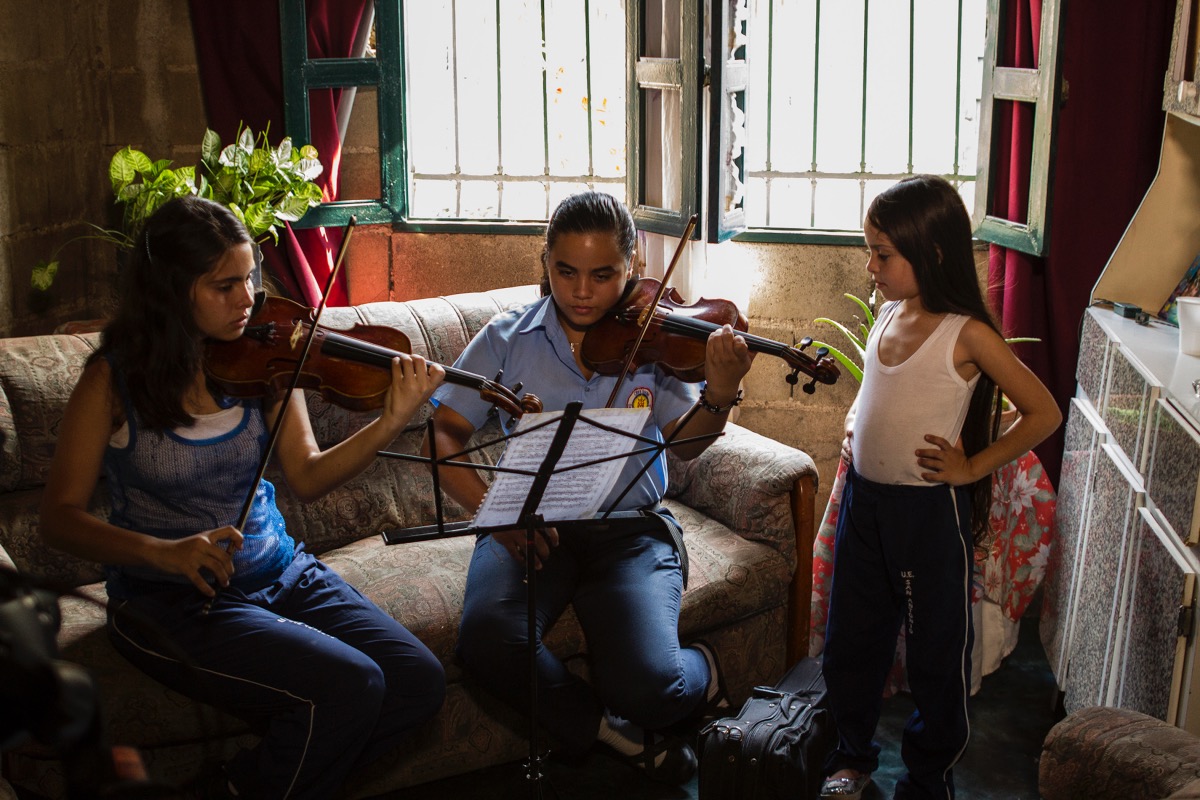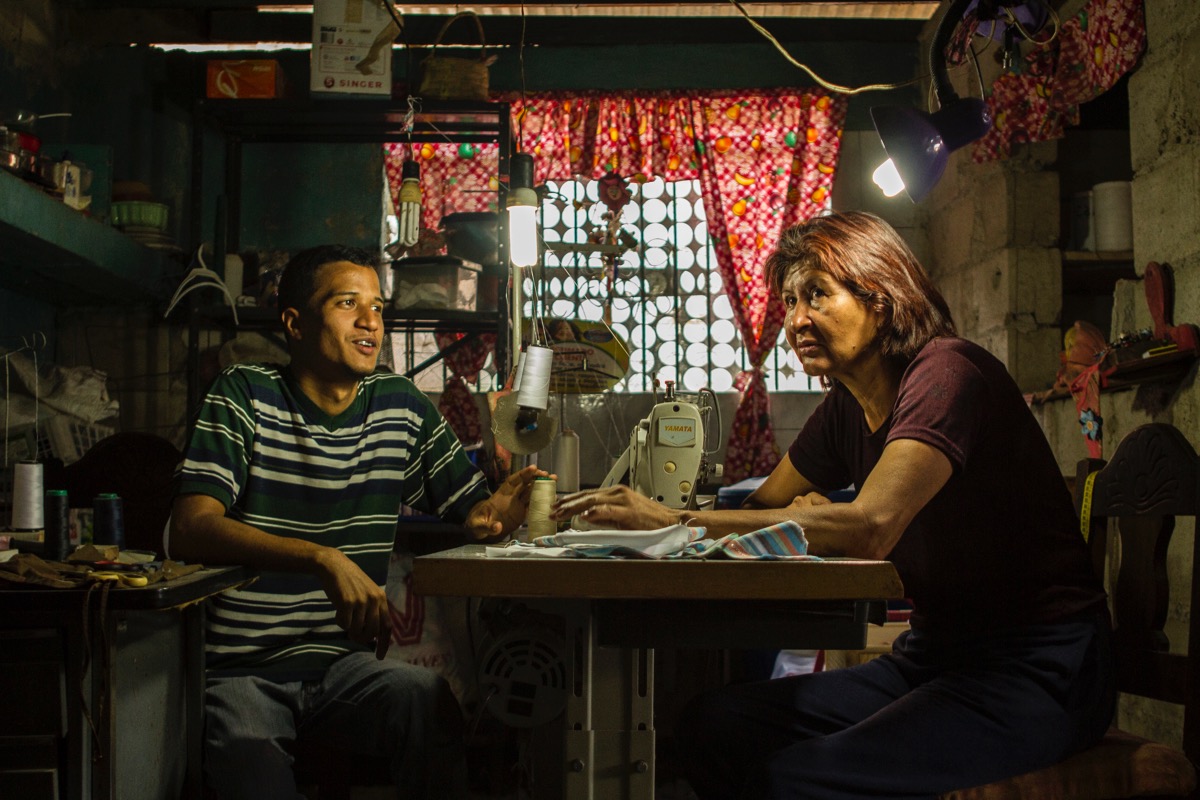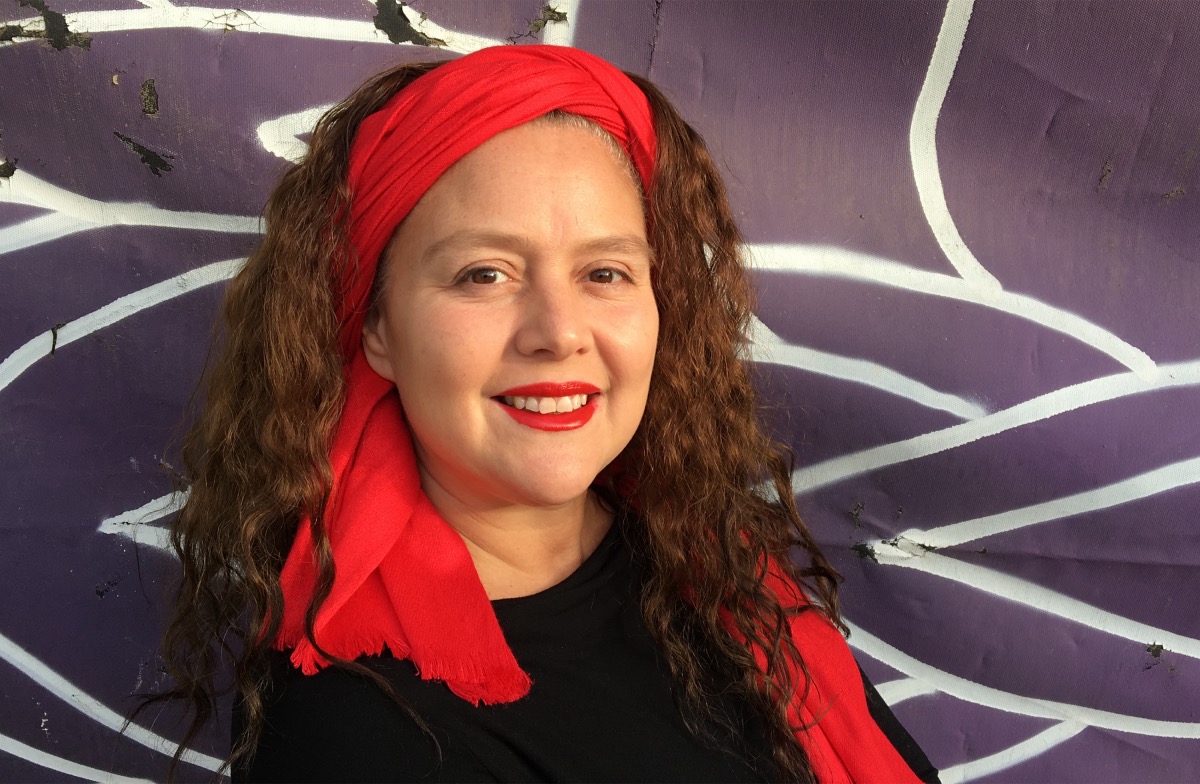

Dissandra practices before an audition with a friend and her little sister, in a scene from ‘Children of Las Brisas.’ (Carolina Burbano)
Way back in 2009, Venezuelan filmmaker Marianela Maldonado set out to tell an inspirational story of her country’s famed music program, known simply as El Sistema, or “The System.” After 10 years of filming, following three young musicians, her documentary Children of Las Brisas is now airing on PBS, and it tells quite a different tale.
El Sistema gives Venezuelans kids of all economic backgrounds access to classical music education, and the program has produced world-famous musicians like Gustavo Dudamel. It garnered a lot of international attention, and so Maldonado returned home to try to capture some of the story.
Her cousin was running a little Sistema orchestra, and when she visited, she found what she described to Latino Rebels as “little miracles”: “kids and families were being transformed by the music.”
But the heartwarming story about the power of music was not to be. Instead, Venezuela fell into crisis, and when Maldonado returned to visit and film her three subjects, she found scarcity.
“In 2014, we started filming quite a lot. And then, suddenly, you could see that every little step was more difficult… The scarcity began in that year. We didn’t have food, we didn’t have medicines, we didn’t have gas, we didn’t have electricity,” she explained. “There is a moment that [the kids] couldn’t bring their instruments back to the home because they were so afraid [of] being robbed. A few musicians got killed to rob their instruments around 2015.”
Children of Las Brisas continues through 2019 as Maldonado’s young subjects grow into adulthood. Music continues to shape their lives, but they are forged by growing up in turmoil, their choices becoming harder and harder.
Wuilly is a talented violin player and uses his strength as a musician to escape his conservative parents. He moves to the capitol and is thriving—for a while. He joins the protests that engulf the city, particularly radicalized by the death of another Sistema musician at the hands of the state.
Edixon plays the viola, dreams of getting medical treatment for his deaf mother, and argues politics with his abuela, who supports the regime he’s against. As basic necessities become scarce and his abuela loses her job, he gives up his dream of being a professional musician and joins the army instead, his ration feeding his entire family.


Edixon, left, sits with his grandmother as she sews. (Carolina Burbano)
Dissandra, another violinist, tries to make a career in music. She forms an all-girl quartet and plays in restaurants, but it doesn’t pay well. Eventually she flees her country for Peru, hoping to find real economic opportunity. In doing so, she joins seven million of her fellow Venezuelans as a refugee.
So the film that Maldonado ultimately made is “an exercise of introspection to understand what happened to our country and learn from what happened,” she said. “The fall of democracy has become a tragedy for Venezuela and for all the countries around because they have received so many Venezuelans.”
Maldonado is clear that authoritarian regimes are wrong, but grants that how people respond to them is more nuanced. Children of Las Brisas lives in the gray, allowing its young subjects grace as they navigate their evermore challenging world.
El Sistema itself falls into this in-between space, a part of the state that is inflicting all this pain but also a beacon of hope for people who sorely need it. Maldonado is frustrated that the state uses El Sistema as propaganda, turning its teachers, students, and accomplishments into political pawns. At the same time, she credits the teachers who work for little, still eking out those little miracles, despite the turmoil around them.


Marianela Maldonado, director of ‘Children of Las Brisas’ (Robin Todd)
In the end, she hopes her film helps people better understand her country, push more for democracy, and support the millions of Venezuelan refugees around the world, as well as serve as a cautionary tale about the vulnerability of democracy—because authoritarian regimes infect all they touch.
As Maldonado asks, “Where do you form musicians [and then] kill them on the streets when they protest?”
In Venezuela, as it turns out, with its famed El Sistema that garnered all those accolades but couldn’t save its students from the troubles that lay before them.
***
A writer and activist, Cristina Escobar is the co-founder of latinamedia.co, uplifting Latina and gender non-conforming Latinx perspectives in media. She’s a member of the Latino Entertainment Journalists Association and writes at the intersection of race, gender, and pop culture. Twitter: @cescobarandrade


